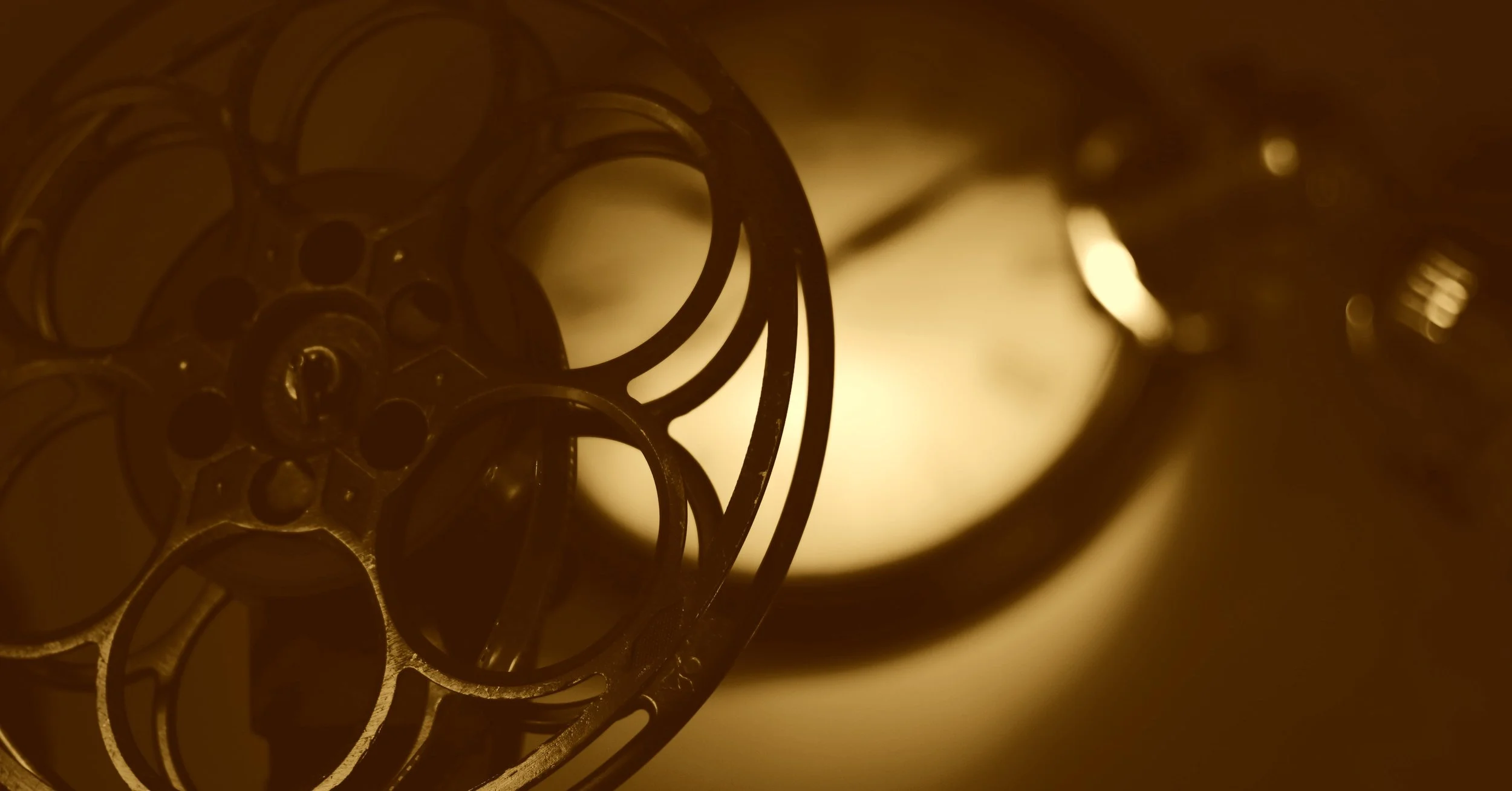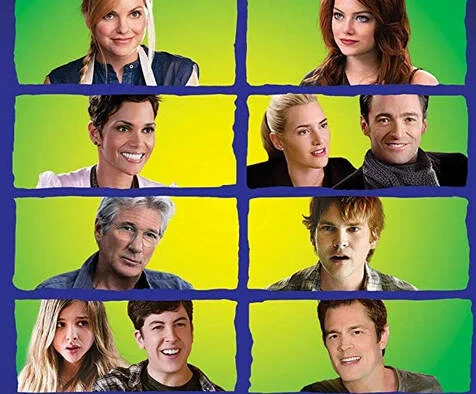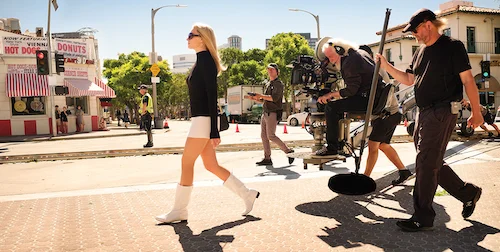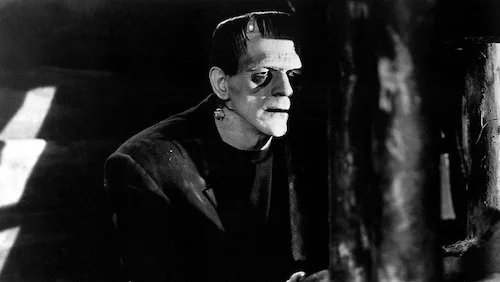Good Casts Don't Mean A Good Film: An Important Lesson
Credit: Timothy Eberly
That movie coming out has everyone in there! It has the charming new performer from your favourite recent comedies, trying out their dramatic chops. There's the television star moving to the big screen. Their parents are played by two acting veterans! These two stars of yesterday, acting together for the first time! Oh wow, I didn't even notice this underrated gem getting a supporting role as the chiropractor. This is it! This is the film of the year!
Why in the name of all that is holy did this film suck?
A very important lesson everyone has to learn: a good film can have a good cast, but a good cast never makes a good film on its own.
Avoid. This. At. All. Costs.
I know. The news is disheartening. You need to hear it though. There is nothing wrong with showing loyalty to a favourite performer by going to see all of their works, but you need to understand that this never guarantees a good film. This is also true with a star studded line up, despite the extra amounts of promise. Let's not forget that casting can also be a means to sell a film, which can be a major priority for some producers (even more than how they contribute to a film). I'm talking about those Valentine's Day, New Year's Eve, and National Wombat Day films. Did you get suckered into seeing a bland rom com full of fluff? That doesn't matter to the studio that made big bucks off of their trickery. How can they go wrong with twenty of everyone's favourite acting talents?
Then there's Movie 43. Many talented people. Zero actual talent displayed. Potty humour galore. That doesn't matter if seats are filled. None of this guarantees that films with good casts will be bad either. What can you do to avoid watching terrible movies that are prioritized to take your money, rather than tell a riveting story?
Stop letting casts be the focus of your film selections. I love great performances as much as the next person, but -- and this will hurt to say and hear -- casts really aren't the biggest component of a film. They may seem like they are, because they are the familiar faces you see often. Yet, they say the words of others under the direction of someone else, framed by another set of crew members, and edited together to make the most natural semblance. Is acting important? Of course it is. It's as essential as every other component in film. It takes a great actor to abide by the mentioned restrictions, and rise above in an inventive connective way. I'd argue the difficulty of acting is actually underestimated by the general public. My point here is that acting is one of many elements that make up a film.
Just because the end result shows the left, that does not mean we should forget all the people on the right (and not even pictured).
What can you do to prevent being bamboozled? See who wrote the film. See who is directing it. What studio is releasing it. There's a big difference between a star studded cast being represented by Happy Madison over A24, for instance. One company gathers recognizable folk for silly antics, and the other puts heads together to release something a bit more substantive. Even then, you aren't guaranteed a perfect film, because no one is perfect (let alone hundreds of people working on one film). Watching movies is a gamble It always has been. It's about time you bettered the odds of you seeing a good film.
This is also a good excuse to get familiar with names that aren't actors or actresses. Every credit has some sort of an entry level accessibility, while being recognizable and memorable. Roger Deakins may be everyone's first favourite director of photography these last few decades, so that can be a good person to start with when it comes to cinematography. John Williams is beyond iconic for his score composition, but learning some new names will also help. If Hans Zimmer already rings a bell, maybe try Mica Levi, whose haunting scores have already made her a big name.
Don’t get sucked in.
You can make this an easier journey and not a tougher one. Let's go easier quickly. Maybe a good place to start is with a director, preferably one with a distinctive style. Darren Aronofsky favours gritty hyperbolic melodramas that are bound to make common moviegoers feel like dirt afterwards. Christopher Nolan loves to toss in narrative confusion to turn his films into thinking games. Katheryn Bigelow dishes out political commentary while coating her films with an ambiguous grey area, so bias never takes the wheel.
What about screenwriters? That's usually a great place to start looking. A writer's key style will affect any film you may be interested in watching. Would you dare watch a film about a time traveling panda that experiences a longing for the plant where it originally came from? What if Charlie Kaufman wrote it? It will still sound farfetched, but you may be inclined to wonder what he could possibly be trying to say with this film. The fact that one of our most anticipated 2019 films is one where Taika Waititi plays Adolf Hitler says enough. He wrote and directed the film, is known for his provocative and satirical styles, and we can understand his intentions on portraying a maligned historical monster in such a jarring way. What if someone like Tom Hooper was trying this out? It just doesn't sit the same way. If any of the names in this paragraph aren't recognizable, this is what I'm talking about. These are incredibly well known, mainstream names in their fields.
Screenplays can end up being your favourite element of a film, if you’re into the literary side of the medium.
Time to get crazier? Sure. You can learn who the hottest editors, sound experts, costume makers, stylists, and set designers are. This is all too much to take in I'm sure, especially if the most important names to you currently are the leading director's and the leading cast. The best way to go about this is doing some quick looking at past awards season nominees and winners. One major reason why I try to get everyone in the spirit of awards season is not for who will win (I usually disagree anyway), but to celebrate every aspect of cinema. When you recognize a director's trademark, it's pretty exciting. When you become familiar with how one production designer details their sets, it's like you view film in a whole new light.
After all of this familiarity, upcoming films become a mix-and-match prognostication. Let's make a science fiction thriller about human colonies struggling on Mars. It stars Chris Pratt, Emily Blunt, Robert DeNiro, Kathy Bates, and Christoph Waltz. Sounds great, right?
Hold your horses. What have we just learned? Okay, so the film is shot by Bradford Young, the score is by Alexandre Desplat, and the screenplay is by Christopher Hampton. What can we try and predict now? Well, Young (who has shot Arrival and A Most Violent Year) will deliver visuals that are gritty yet warm: an enhancement of tribulations, and the perseverance underneath. Dusplat (who won Oscars for The Grand Budapest Hotel and The Shape of Water) will bring a score influenced by old Hollywood melodies, with a pinch of curiosity and a dash of optimism. Hampton is known for his romantic epics (Dangerous Liaisons, Atonement). If I had to make guesses as to how this film will be, it seems like a mainstream space romantic drama, which can be tangible for most audiences.
Sorry for slapping these filmmakers together like some sort of a critical Dr. Frankenstein. It is fun, admittedly.
Let’s turn things around. Now, Bruno Delbonnel (Amélie, The Darkest Hour) is shooting, Trent Reznor and Atticus Ross (The Social Network, Bird Box) have conducted the score, and all of this is for an Alex Garland screenplay (28 Days Later, Annihilation). Sounds much more dismal, right? We have a philosophically tweaked script, some brooding electronic music, and colour heavy (greens, mostly) images. Not such a bright film, in comparison to the previous set up. I’d expect a complex, pessimistic take on human life in space.
Now, let’s throw a wrench in everything, and set Danny Boyle as the director. Would the romance-in-space set up work, or would the bleak psychological film make a better fit? Boyle also plays by his own rules, so do either of these match ups work at all?
At the end of the day, you won’t ever know how a film is for sure, until you see it. What you’ve hopefully learned today, is how to better read if a film is best suited for you. You can take the performers into consideration, but don’t make their presence the only validation of whether a film is worthy or not.
Discovering your own favourite crew members of overlooked categories can be daunting. Here are some of my own personal favourites, so you can maybe get started somewhere and see where to go from there.
Screenwriter: Charlie Kaufman (Adaptation., Eternal Sunshine of the Spotless Mind).
Composer: Ennio Morricone (Once Upon a Time in the West, The Battle of Algiers)
Cinematographer: Emmanuel Lubezki (The Tree of Life, The Revenant)
Editor: Thelma Schoonmacher (Raging Bull, Taxi Driver)
Costume Designer: Milena Canonero (Barry Lyndon, Marie Antoinette)
Production Designer: Jack Fisk (Eraserhead, The Master)
These are some very obvious, well known examples in each field, yet they are also excellent starting points. I won’t even discuss how each person is prevalent. I want you to discover it on your own. Once you make these bonds yourself, cinema will never feel the same way again.
Andreas Babiolakis has a Masters degree in Film and Photography Preservation and Collections management from Ryerson University, as well as a Bachelors degree in Cinema Studies from York University. His favourite times of year are the Criterion Collection flash sales and the annual Toronto International Film Festival.







